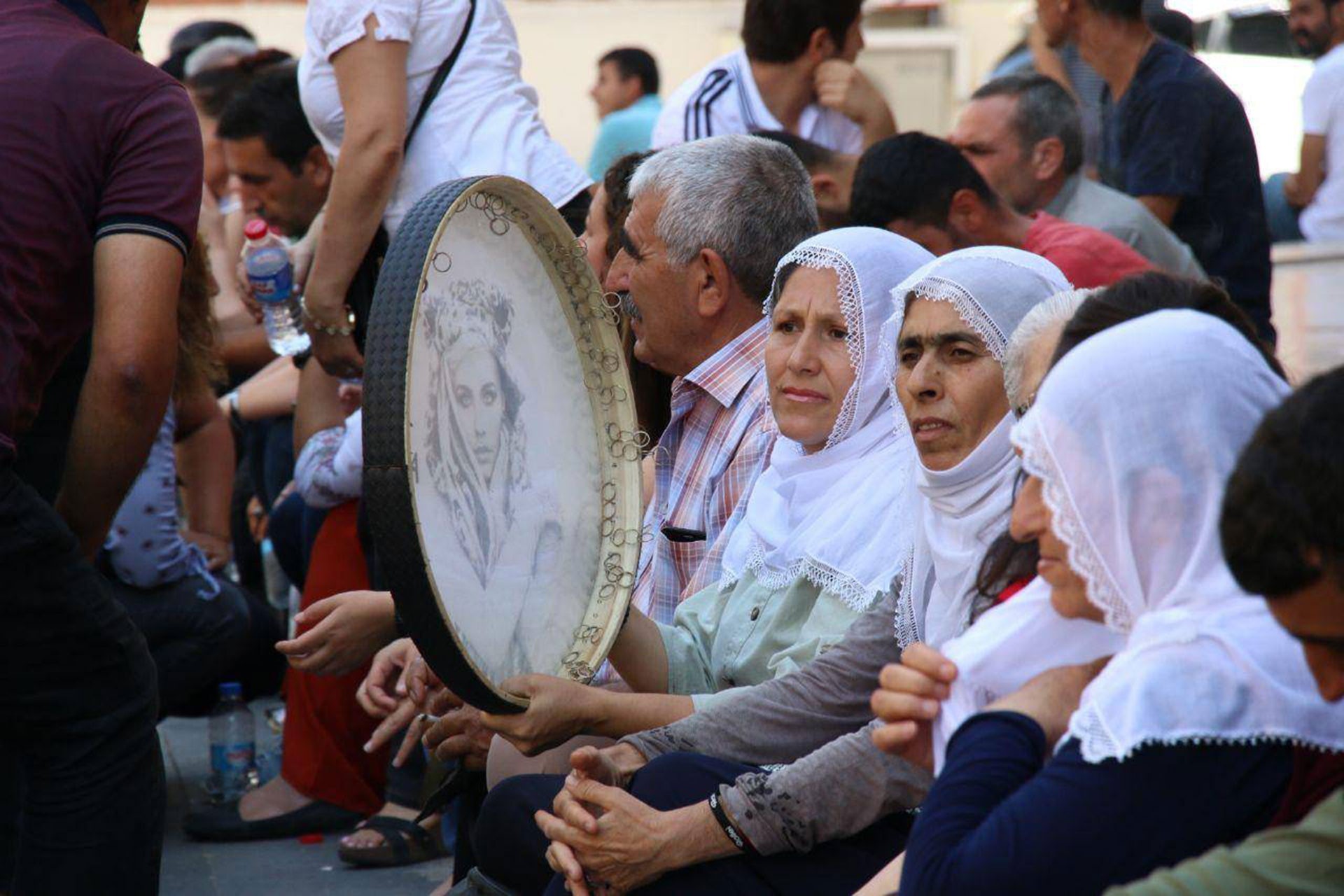How is the Kurdish problem not to be solved?
As the multidimensional and regional issue aspect the problem has today acquired clearly shows, the policies the power holders are intent on pursuing can only provide a reply to the question, “How is the Kurdish problem not to be solved?”
 Photograph: MA
Photograph: MA
The country is riveted by the families protesting in front of the HDP’s Diyarbakır Provincial Organization alleging that their children were abducted to the mountains. By means of these protests it is sought to justify the unlawful appointing of trustees to Diyarbakır, Mardin and Van Metropolitan Municipalities and also to create a pretext for suppressing the anti-trustee sentiment evident in wide sections of society.
With the HDP’s call spurred by the ongoing protests to parties having a group in parliament for the “establishing of a joint commission for the finding of the lost children and a solution to the problem” going ignored, Diyarbakır Republic Chief Prosecution has launched an investigation into HDP provincial and sub-provincial administrators on the charge that “they tricked children and got them involved in the organization.” Solicitations are also being made for the closure of the HDP by certain pro-ruling party circles, citing the families who have been protesting for some time as grounds. There could well be an attempt to make such investigations into the pretext for moves of this kind. On the other hand, despite the agreement reached with the US on the “safe zone” east of the Euphrates, President Erdoğan continues to give a date for the unilateral comprehensive operation. And the cross-border operations codenamed “claw” are being mounted in serial fashion as well.
So, what truth stands in the background to all these developments and initiatives?
Wherever you prod these developments and initiatives, from kids going into the mountains to the trustees and the attempted elimination of the conditions for the HDP to engage in politics, you keep coming up against the Kurdish problem and the policies that the country’s rulers are implementing to solve this problem.
What is the Kurdish problem?
It is the inability to tolerate the local administrators elected by Kurds and the appointing of trustees in their place by the country’s rulers ninety-six years after the founding of the Republic.
It is cramping Kurds’ right to engage in politics; it is the imprisoning of party co-chairs, members of parliament and mayors whose only crimes are insistence on democratic politics.
Never mind Kurdish children’s rights to native language education, the two or three Kurdish-medium schools that were opened have even been closed.
Even though this country’s constitution has undergone many amendments from 1924 until today, it being decreed that, “Everyone bound to the Turkish State through the bond of citizenship is a Turk.”
The plaguing of society with the guard system which was established at the doing of the state to solve the problem and quickly turned into a criminal organization.
The dispersing as seasonal agricultural workers to all four corners of the country of those forced to migrate from their villages and land; the imposition as if fate of racist attacks, exploitation under harsh conditions and work manslaughters
The viewing of the Kurdish problem and even the Kurds’ cross-border attainments as a threat by the country’s rulers and their attempted destruction.
And, with the Kurdish problem and the issues in such plain existence, the president heading the country’s regime saying, “To speak of the existence of a Kurdish problem is to defame me.”
However, the solution to the Kurdish problem, in common with every social problem, is only possible through the elimination of the causes that sustain this problem. In other words, the first step that must be taken towards solving this problem should be for the country’s rulers to abandon the policy of ignoring Kurds’ national democratic wishes. However, like all previous rulers, the country’s rulers today unfortunately imagine that, by eliminating the problem’s results, its causes can be eradicated.
It has been stated countless times by today’s spokespersons for the power holders that the brutality the state meted out in Diyarbakır Prison was an important factor in the appearance and consolidation of the PKK as an armed organization. Bülent Arınç, who today serves as chief presidential consultant, said, “If this oppression had been done to me personally, I, too, would have thought of heading for the mountains.” This means that the organization did not appear as the cause of the problem, but as its result. Hence, what needs to be done for all families whose kids are in the mountains, not just the families protesting in front of the HDP, is the taking of a step in the direction of a democratic peaceful solution as a step towards eliminating the causes of the problem. The demand for such a solution should be addressed, not to the HDP that calls for a democratic-peaceful solution at every opportunity, but to the holders of political power who are intent on solution policies through oppressive and violent methods. Thus, door at which the families should be pressing and asking for their children is not that of the HDP but of the power holders.
In conclusion, the appointing of trustees, the coercion of the HDP, the kids heading for the mountains and the ongoing operations each come as a manifestation of a result of the Kurdish problem. And, as the multidimensional and regional issue aspect the problem has today acquired clearly shows, the policies the power holders are intent on pursuing can only provide a reply to the question, “How is the Kurdish problem not to be solved?” As such, what those who are sincere about meeting the demands of the families protesting in front of the HDP need to do is to urge the power holders to abandon the doggedly pursued incorrect policies and to take steps towards the democratic-peaceful solution of the problem.
(Translated by Tim DRAYTON)


Follow Evrensel